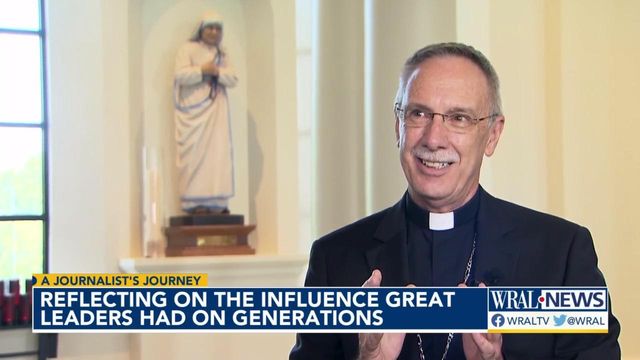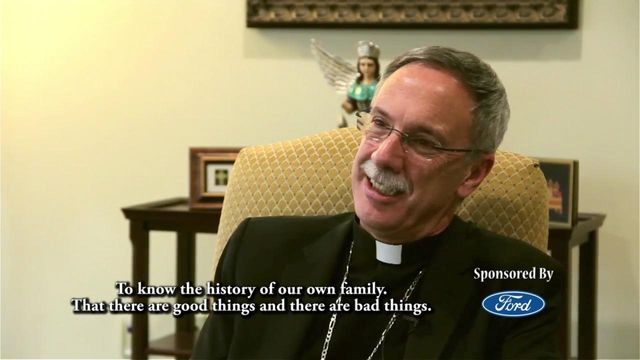Faith shapes us all in different ways
David Crabtree has covered some significant and wide-reaching stories during his 40 years as a journalist. In his final month at WRAL News, he's revisiting some of the issues that have impacted him most professionally and personally, to reflect and share where they stand now.
In the spring of 1995 I was assigned to focus on a series of stories around the issue of faith.
Not religion. Not spirituality. Faith.
I covered everything from a truck stop Bible study in Clayton, to a preacher who shined shoes at Raleigh-Durham International Airport, to a Sunday school class for mentally challenged adults, to a communion service on death row.
I also became the reporter to cover funerals – Pope John Paul II, Nelson Mandela, children who died from gang violence, people who died in hospice care and Mother Teresa.
My time in Calcutta, India, taught me about theology and the real working of the human psyche.
In the ensuing 25 years, I've seen the coverage of such things change.
How sad.
This article I discovered recently from Bible.org sums it up nicely.
Speaking about theology in times past was not thought of taboo as it is today. It used to be called “the queen of the sciences.” It was understood to be the first among pursuits of knowledge, since it was believed that all other pursuits were vitally linked to its dictates. Morality was dictated by it. Philosophy was called its handmaiden. Why was it held in such high esteem then? Because theology itself provides a foundation for your philosophy and worldview, which in turn sets inclinations for your heart, actions, and decisions in all situations. Everything is affected by your theology. For example, if your theology denies the existence of God, then your morality is going to be affected since its basis is not a personal and timeless being. With a theology of atheism (i.e. belief that there is no God) morals become relative to the time and situation. In this case, what is true for one generation may not be true for another. If your theology denies the sinfulness of man, then a bloody sacrificial death to atone for sin becomes repulsive, since, according to your theology, men don’t need to have their sin atoned for. If your theology is polytheistic (i.e. belief in many gods), then you will constantly be trying to figure out which god or gods you should encounter, pray to, and/or appease in order to make their situation “right.” The implications are endless.
In short, theology is a set of intellectual and emotional commitments, justified or not, about God and man which dictate ones beliefs and actions. Neither the word itself is irrelevant, nor the concepts which it seeks to articulate. It is the first pursuit of knowledge and wisdom.
- 2012: Faith, Fear and Freedom, WRAL Documentary on Islam in North Carolina
- 2007: Upon This Rock: Inside the Vatican under John Paul II
May we, at times, drop our journalistic masks and remember, first, we are human. We leave an imprint and a footprint.
I am grateful for the stories of faith I covered and how it was faith that truly covered me, even when I flew too close to the sun.
Amen.











